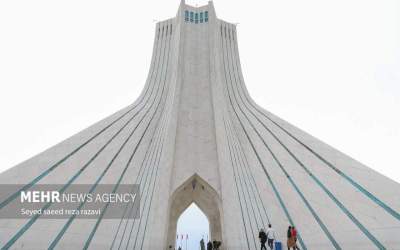An administration official said Mull, who joined the foreign service in 1982, is the State Department pick, though the choice is not yet official.
Mull�s appointment could both please and disappoint close observers of the process: The fact that there will be a lead coordinator � administration officials refuse to call it a �czar� � is something many advocates of the deal support, but Mull may not be as well-known a figure as some had hoped.
Congress is still reviewing the deal with the Islamist-led government in Tehran, and is expected to vote against it next month. However, the administration is confident that opponents don�t have the votes needed to override a presidential veto, so the State Department is going ahead with long-term planning for implementing the complex deal, which requires that Iran curb its nuclear program in exchange for relief from international sanctions.
Mull has held a wide range of diplomatic positions, including some that involve navigating the U.S. bureaucracy, according to his biography on the State Department website.
Mull�s roles include serving as �a senior adviser to then-Undersecretary of State for Political Affairs William Burns, in which capacity he coordinated U.S. diplomatic efforts on Iran, managed the State Department�s crisis response during the Russian-Georgian war of August 2008, and led negotiations on a range of U.S. national security issues, including the agreement permitting the flight of U.S. military resupply flights to Afghanistan through Russian airspace.�
He�s served as the U.S. ambassador to Lithuania and was the deputy chief of mission at the U.S. Embassy in Jakarta, Indonesia. Prior to his swearing-in as ambassador to Poland in October 2012, he served as executive secretary of the State Department, a position akin to a chief operating officer. Mull also worked in the office of the undersecretary of state for international security affairs and arms control.
�He�s got a long history in the State Department, on everything from sensitive political missions to organizational matters, but he also has got very good knowledge on Iran,� said Richard Nephew, a former State Department official who worked with Mull on sanctions-related matters.
It was not immediately clear whether the coordinator role would require congressional confirmation, though that is unlikely. The position will be based at state, but Mull is expected to have representatives from other departments involved in implementing the deal reporting to him, including officials from Treasury and Energy.
The White House referred questions about Mull and the position to the State Department, which did not immediately respond to a request for comment. Mull also did not immediately respond to an emailed request for comment.
When it first emerged that the administration was weighing appointing a lead coordinator, a number of experts in arms control and diplomacy spoke highly of the idea. Some noted that such a position did not exist in the wake of the 1994 nuclear deal with North Korea; that deal ultimately fell apart.
The Iran deal, whose lead negotiators hailed from seven countries, is far more complex than the North Korea agreement. It is expected to be phased in over time and puts responsibilities on all the parties involved to take specific steps, including, for the U.S., removing sanctions. Some experts argued that the lead coordinator should be a heavy hitter with a direct line to the president � someone Congress could also be happy with.
�Much will depend on the person�s substantive experience and bureaucratic clout,� said Joel Wit, a former U.S. official who helped negotiate the 1994 North Korea deal. �It�s essential for effective implementation that they have both.�
Mull, who maintains an active Twitter account, though largely in Polish, is due to return to Washington by the end of August. He�ll take over the implementation efforts from Joseph E. Macmanus, who has been serving as the interim coordinator and is the current executive secretary at State.
This article was written by Nahal Toosi for politico on AUG. 19, 2015.
# Tags










